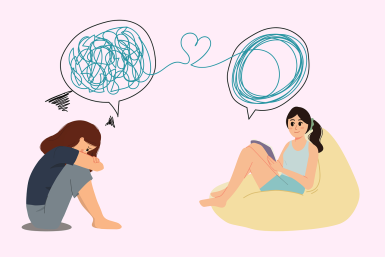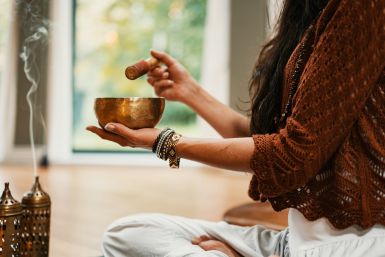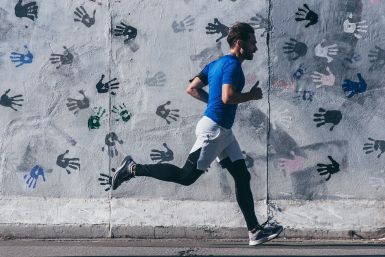Learn about the differences and testing for flu A and B and COVID-19 and how to make holiday travels and gatherings safer.
With the right stylish essentials, you can transform rooms into inviting retreats that exude everyday luxury
In 2019, Americans faced $3.14 billion in out-of-pocket costs for breast cancer treatment, making it the most costly cancer treatment category.
Switching to a bidet, like the LUXE Bidet® NEO Plus series, can improve comfort, especially for those with sensitive skin or certain medical conditions, while promoting a cleaner and greener lifestyle
Drawing upon decades of behavioral research, ikHerstel developed a digital platform that uses real-world data and transparent artificial intelligence to provide adaptive individualized recovery plans.
Researchers found significant differences in health outcomes across generations, pointing to a concerning trend known as the "generational health drift."
Pacific Coast Mental Health's treatment plans incorporate more well-established therapies such as Cognitive Behavioral Therapy (CBT), Dialectical Behavior Therapy (DBT), and psychodynamic therapy.
The company claims the Zepbound doses cost 50% less than competing drugs
Weight-loss drugs produced and distributed by Eli Lilly show promising results in cutting long-term diabetes risk.
According to the FDA's guidance document on when to submit a 510(k) for changes to an existing device, manufacturers must submit a new 510(k) if there are significant changes to the device's design, materials, or intended use.
AseptiScope CEO Scott Westhaver Mader uses a process he calls "Market-Driven Science," to identify critical attributes required to resolve unmet challenges in healthcare.
According to Brown, most providers, especially independent practitioners and smaller hospitals/clinics/ambulatory surgical centers (ASCs), do not have the resources to go after these claims, with their office administrative staff lacking the expertise or the bandwidth to perform the appropriate tasks.
According to Dr Patrick Yassini, simple shifts in medical paradigms and physician mindsets could lead to a better healthcare system for everyone.
In a unanimous decision, the Supreme Court permitted doctors to mail the pills to their patients even without an in-person visit. Justice Brett Kavanaugh wrote the opinion on the case, citing lack of standing as the grounds for the decision.
The FDA panel voted 9-2 on whether it was effective and voted 10-1 on whether the proposed MDMA treatment is safe or if its benefits would outweigh the risks.
Dr. Alsheikh points out the major dislocation between social expectations and cost, which do not compute with the economic realities.
For Debra Reis, an experienced and passionate nurse with over 40 years in the industry, these challenges transformed into the inspiration behind Reis Wellness Services (RWS), providing innovative programs supporting healthcare facilities through empowering nurses.
With Medicare continuing to cut physicians' pay, being a physician, especially if they own a healthcare delivery facility such as a clinic or medical center, is becoming more financially unsustainable.
Benevolent Family Services (BFS), a behavioral health company headquartered in Hampton, Virginia, has introduced an innovation in the delivery of mental healthcare services.
In its efforts to make substance use disorder (SUD) treatment more accessible, CODAC developed a Mobile Medical Unit initiative that delivers essential care and medicine to underserved communities.
PuraVida's KidsLife™ Products promote healthy eating habits from a young age, educating parents and children about nutrition through resources like nutritional facts and meal planning tips.
In a post-COVID world, society is branching away from pharmaceutical medicine and seeking support that may be less likely to cause side effects.
In the US, 19% of married women with no prior births experience infertility, while 26% have difficulty getting pregnant or carrying a pregnancy to term.
The perfect CrossFit shoe strikes a balance between the flexibility of a running shoe and the stability of a weightlifting shoe, which is essential for squats and deadlifts.
In an American Psychological Association poll, 86% of adults believe individuals with mental health disorders can improve. Dr. Olivia West, or Dr. O, is dedicated to assisting those struggling with mental health, bridging the gap for those facing difficulty accessing help.
If you wish to enjoy smiling and carrying conversations, without having to worry about your lips, then you need to have the best lip balm within your reach.
The opioid crisis, fueled by over prescription of painkillers, has had further devastating consequences on mental health.
The upcoming Supreme Court case on mifepristone access in abortion procedures sparks contentious debates that strike at the heart of the controversial issue.
Nvidia and Novo Nordisk's joint venture, Gefion, represents a groundbreaking endeavor in medical research, leveraging AI technology.
The new law, a Republican-backed initiative, does not directly address the personhood issue at the core of the Supreme Court ruling but aims to provide civil and criminal immunity to IVF providers and patients for the destruction or damage to embryos.

















































